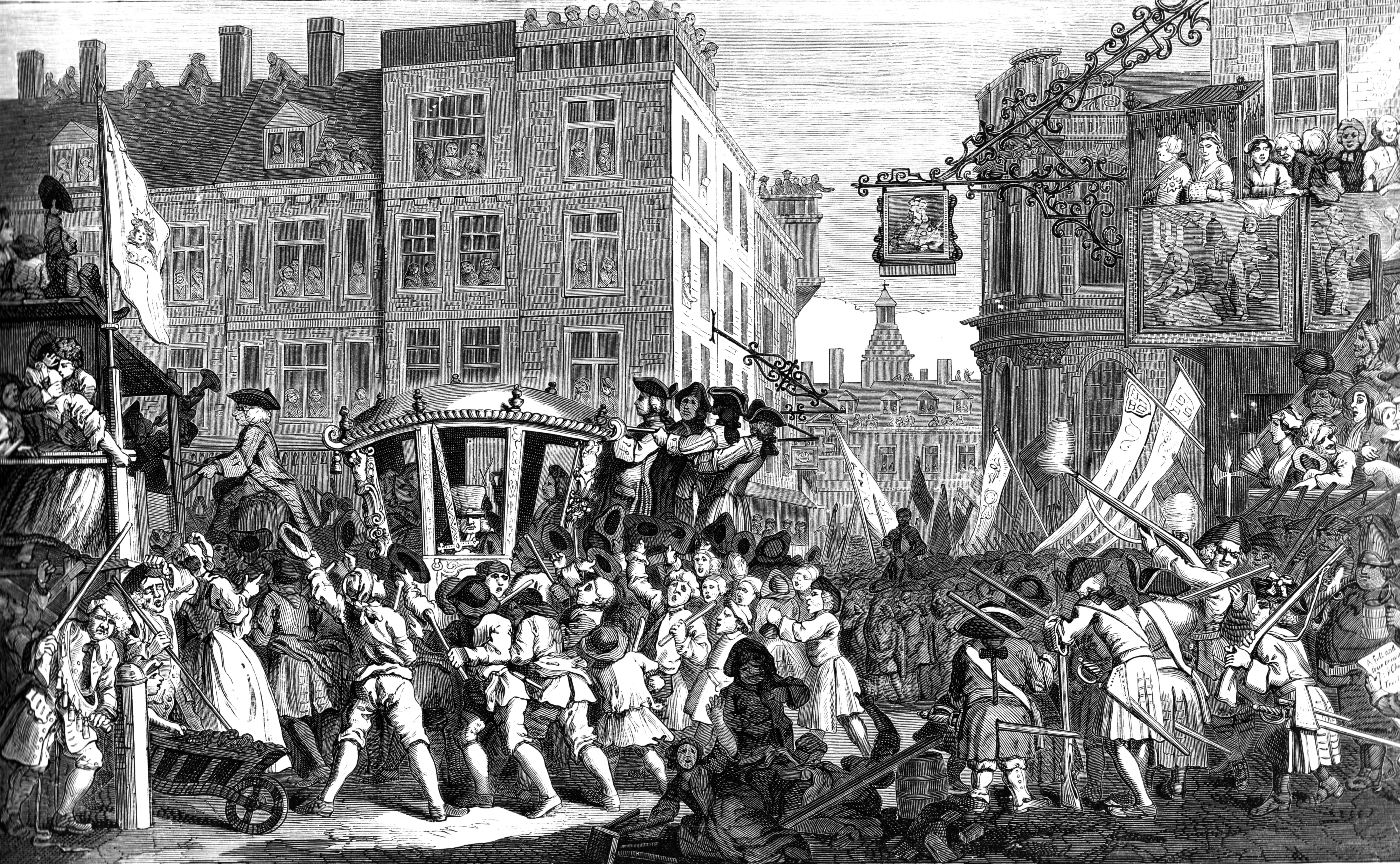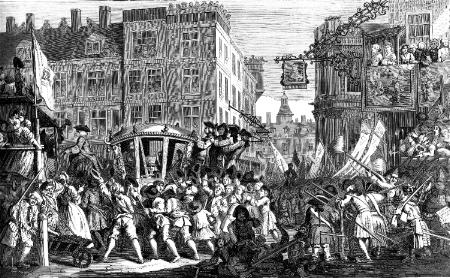
|

|
The amazing web site of Shakespeare's Sonnets. Industry and Idleness. Plate 12. The Industrious Apprentice Lord Mayor of London , by Hogarth.
HAKESPEARE'S
ONNETS
This is part of the web site of Shakespeare's sonnets
PICTURE GALLERY.
William Hogarth 1697 - 1764.
| Hogarth
first achieved fame as an artist through his series of moralistic
engravings, commencing with A
Harlot's Progress
in 1731. This was followed by A
Rake's Progress
in 1735, Marriage
ŕ-la-mode
in 1743-5, and Industry
and Idleness in
1747
. Originally the sets of pictures were oil
paintings which
Hogarth subsequently published as engravings. However the
Industry and Idleness series was conceived entirely as a set
of engravings which were not copied from paintings. They were
put on sale for one shilling each, which is equivalent today, (2008),
to about ten pounds sterling (GBP). Evidently Hogarth was
trying
to appeal to a wider audience than the upper class wealthy who were his
usual patrons. The Industry and Idleness series is rather crudely moralistic, depicting how industry and virtue are rewarded with worldly success, while idleness, corruption and vice is ultimately punished by the gallows. Despite this rather tedious tale, which is not true to life and simplistically misrepresents the apprenticeship system of the time, the engravings are a superb record of both the lower and upper end of London life of the time. The banqueting scene of Plate 8 and the two final crowd scenes of the Tyburn spectacle and the Lord Mayor's Parade are incomparable and show the satirical Hogarth at his very best. |
||
| This
final engraving shows the Lord Mayor's parade going through Cheapside.
This was an annual event which usually took place on November
9th. Goodchild becomes a shadowy figure, barely visible
inside the
coach, and also to a certain extent a figure of fun made to look
ridiculous by the setting. The
Marshal of
the City sits in the coach wearing a pompous hat and brandishing the
huge ceremonial sword.
Royalty look on from a balcony above and all windows, balconies and
even rooftops are occupied by spectators. Hogarth also
manages to poke fun at the London Militia, a motley collection of
individuals who do
not seem to know how to handle muskets or swords. One of them
is
on the left of the picture, drunk and leaning against a post.
Another fires a musket almost by accident. On the left on some scaffolding a woman is being kissed while a man below peers up inside her petticoat. The flag is possibly of Boadicea (Boudicca), symbolising Britannia. In the foreground a plank resting on two barrels, on which some women had climbed to get a better view, has collapsed, sending its occupants sprawling. The figures alongside the coach who are cheering and waving their tricorns look little better than rioters All in all, the abiding chaos of the scene and the shadowy depiction of Goodchild lead us to think that not all is as it seems. Perhaps the morally perfect hero has reached a pinnacle from which he discovers that life is empty and meaningless, whereas all around him the thrum and bustle of London life continues on its own sweet way, as it always has done. |
||

Shakespeare's Sonnets:
| Start here with the first sonnet |
|
Sonnets 1 - 50 | Some links to other sites | ||
|
|
Sonnets 51 - 100 | ||||
|
|
|
Sonnets 101 - 154 | For
a global search use all the sonnets as
plain text 1-154 or use the first line index. |
If
you have enjoyed this web site, please
visit its companion - Pushkin's Poems |
|
| Map of the site | |||||
| Views of London as it was in 1616. |
London Bridge As it was in Shakespeare's day, circa 1600. |
To
search for a line or phrase in the sonnets
go to the sonnets as plain text and use the browser text search engine. |
| Views of London as it was in 1616. |
London Bridge As it was in Shakespeare's day, circa 1600. |
To search for a line or phrase in the sonnets
go to the Sonnets as plain text and use the browser text search engine. |
| Sonnets 1 - 50 | Back to home page | |
| Sonnets 51 - 100 | If
you have enjoyed this web site, please
visit its companion - Pushkin's Poems |
|
| Sonnets 101 - 154 | If you wish to comment on this site please refer to details on the home page. | |
| Copyright Šof this site belongs to Oxquarry Books Ltd |

Copyright Šof this site belongs to Oxquarry Books Ltd